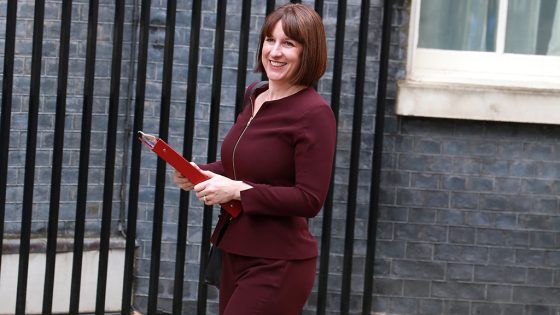Construction industry has mixed view on Budget measures, survey reveals
Rachel Reeves
Only 20 per cent of construction professionals believe the Autumn Budget will be good for the industry, according to a new market report from Gleeds.
Some 28 per cent thought it was actively bad for the sector, with issues like higher National Insurance rates potentially hitting contractors whose margins are often delicately poised, the consultancy said.
Respondents also warned that as profit margins narrow, developers may be deterred from pursuing some projects.
Last month Glencar chief executive Eddie McGillycuddy criticised the National Insurance hike as “ill-thought-out” and Seddon’s Nicola Hodkinson told Construction News it was a “slap in the face” for those who employ direct labour. Plant-hire trade bodies earlier warned that inheritance tax relief changes could kill their industry.
Other measures outlined in the Budget included confirming HS2 would run to Euston and focusing hospital building plans on RAAC-hit estates.
A majority (51 per cent) of the 276 people surveyed between 31 October and 20 November felt that the first Labour Budget for 14 years was neither good nor bad for the sector.
Supporting comments pointed to funding announcements to stimulate the housing and infrastructure sectors.
Figures including Balfour Beatty boss Leo Quinn welcomed chancellor Rachel Reeves’s statement at the time, noting that “budgets always entail difficult decisions”.
But 88 per cent of those responding to the Gleeds survey said they were either not at all confident or not confident that pledges such as building 1.5 million homes and infrastructure projects would be delivered in the planned timescales.
They pointed to previous government targets on housing and large infrastructure projects rarely being delivered.
Factors such as high interest rates, building costs, procurement inefficiencies and skills shortages were all seen as potentially hitting project viability and casting doubt on developers building the required number of homes or infrastructure.
Elsewhere in the Gleeds survey, 59 per cent of respondents said they were surprised by the collapse of ISG.
Comments made to the researchers highlighted that while it was known ISG was in financial trouble, they thought a recovery plan was in place and that there was a buyer who would invest in the company. Others expressed surprise at the speed of the collapse, the report said.
A similar proportion (58 per cent) said they think more tier ones are likely to go into administration in the next 12 months, while 66 per cent do not believe positive change will result from the collapse of ISG in terms of things such as improved margins, use of project bank accounts or greater due diligence.
Gleeds chair Richard Steer said: “It has been an eventful year. Potential trade tariffs from the US and instability elsewhere has had a significant impact on investor confidence, which ranked as the number one threat to the industry in our 4Q survey.”
The report highlighted research by the Centre for Economics and Business Research, which found that a 20 per cent levy on imports to the US, as threatened by Donald Trump, would cut the UK’s economic output by 0.9 per cent by the end of his presidency.
Prior to the Budget, after Labour’s first 100 days in power, a survey by Pick Everard and Lichfields found the overwhelming majority of decision-makers said the change in government had not boosted their appetite to spend, citing uncertainty and constraints on council budgets.
Information contained on this page is provided by an independent third-party content provider. This website make no warranties or representations in connection therewith. If you are affiliated with this page and would like it removed please contact editor @producerpress.com







